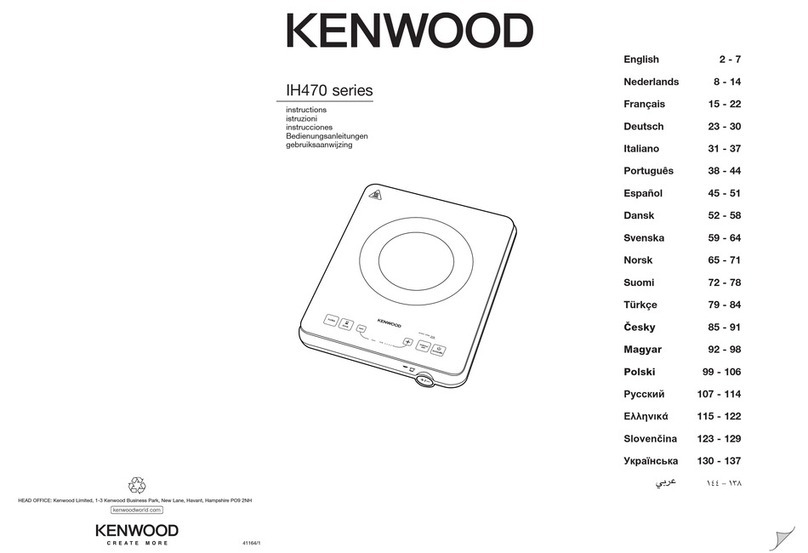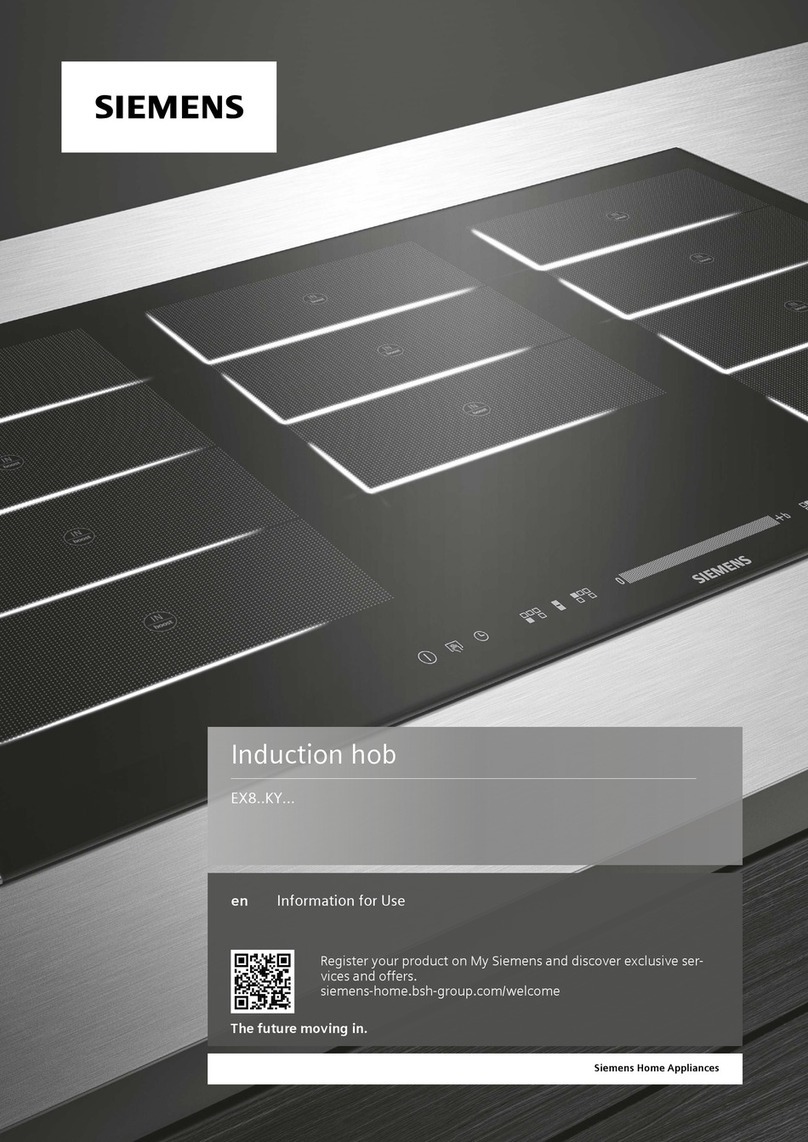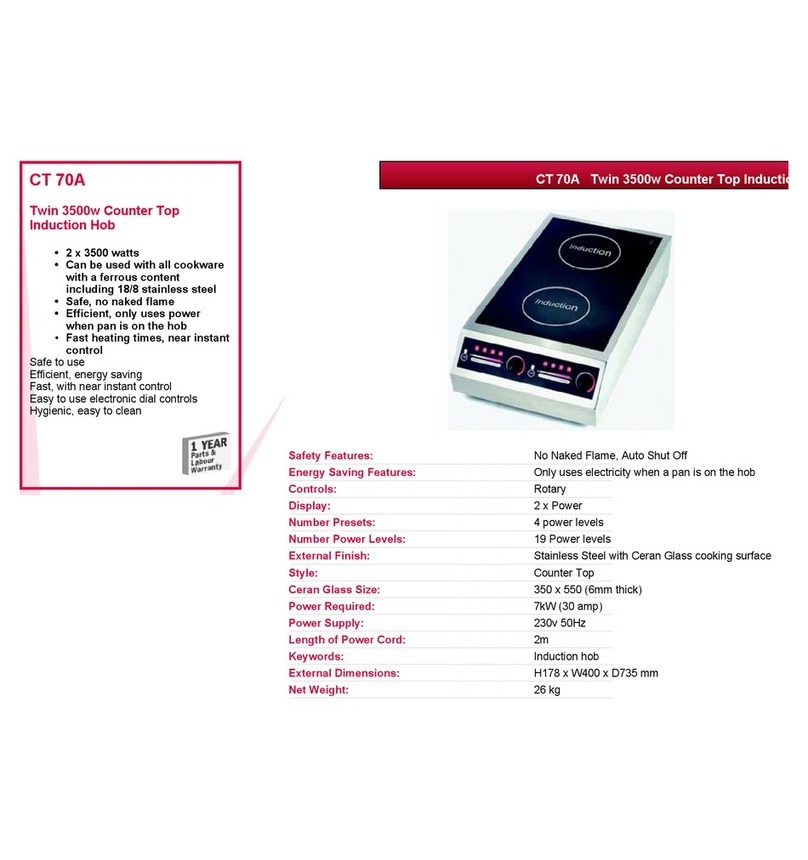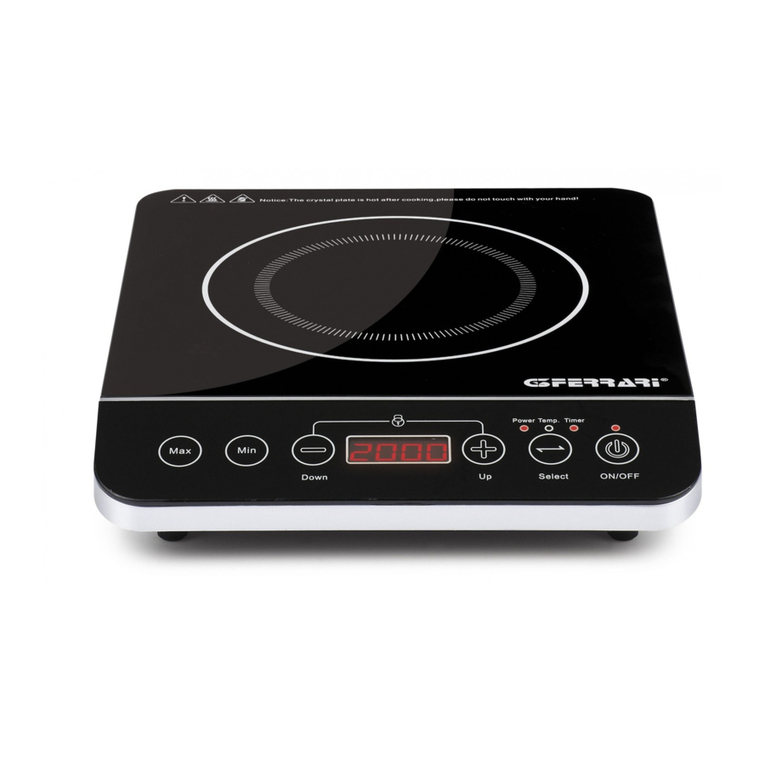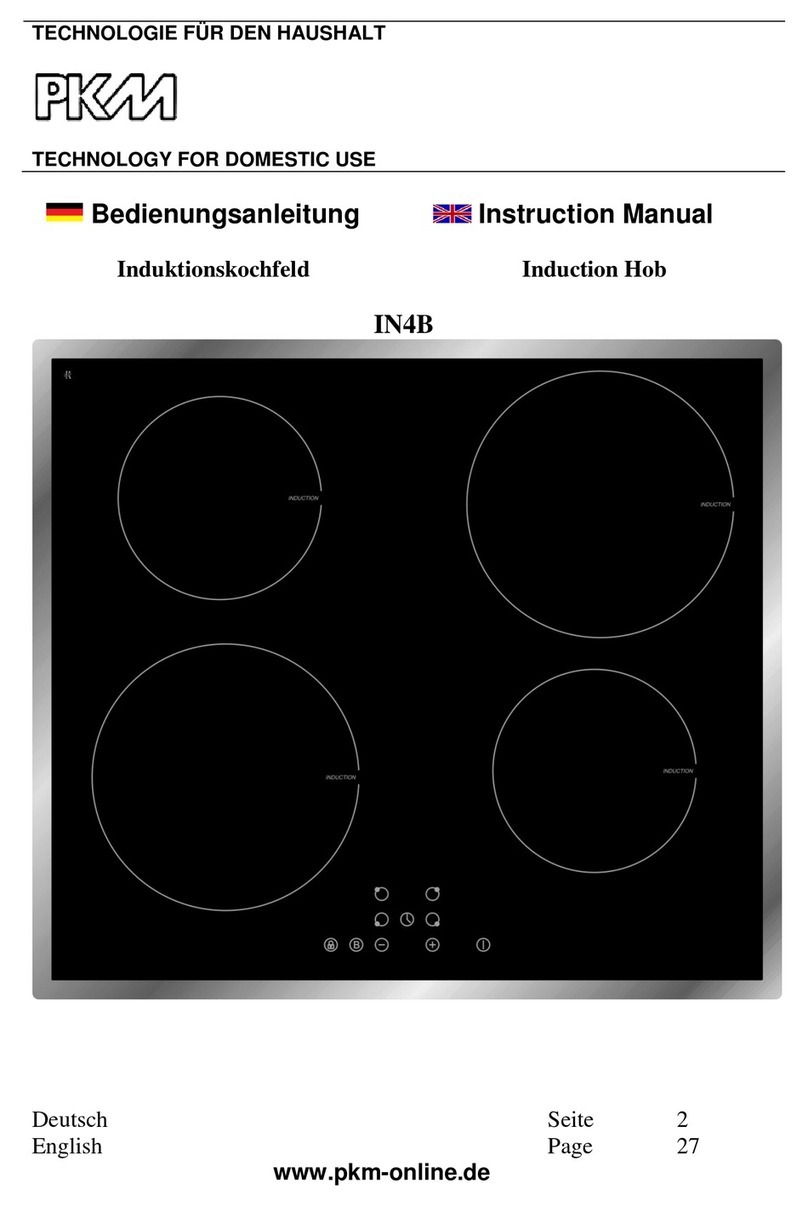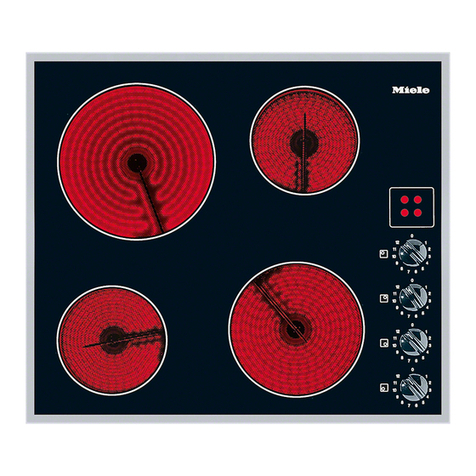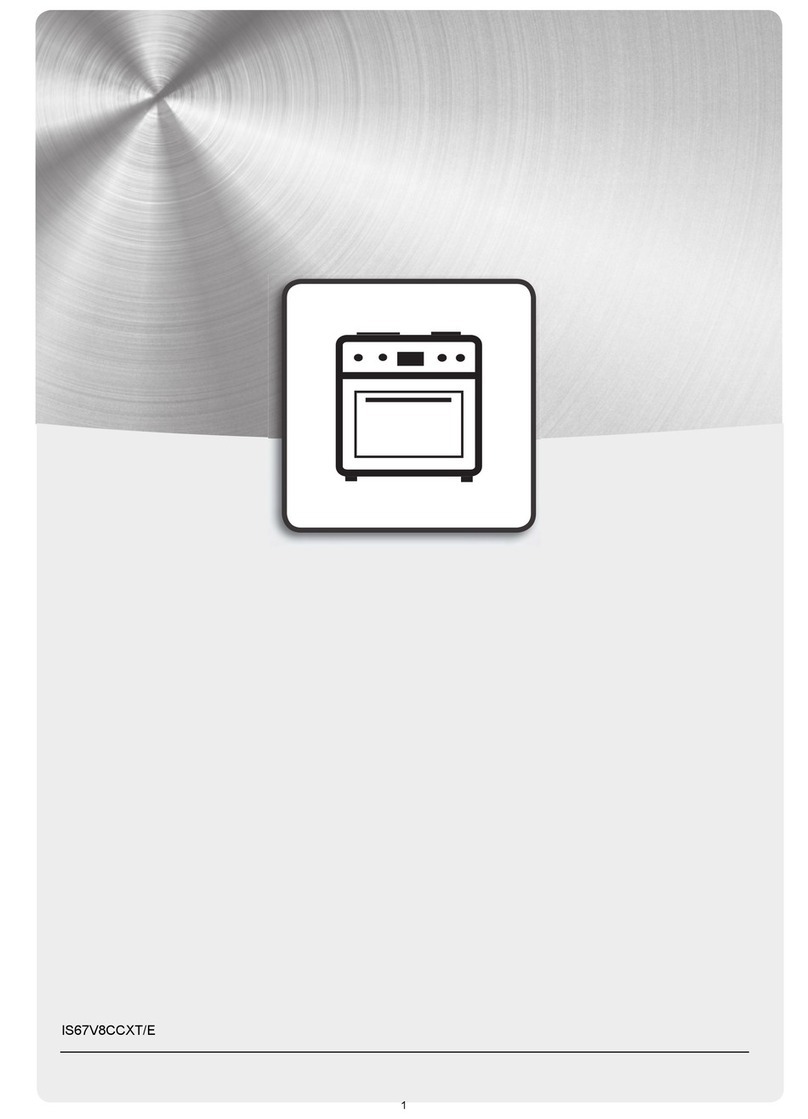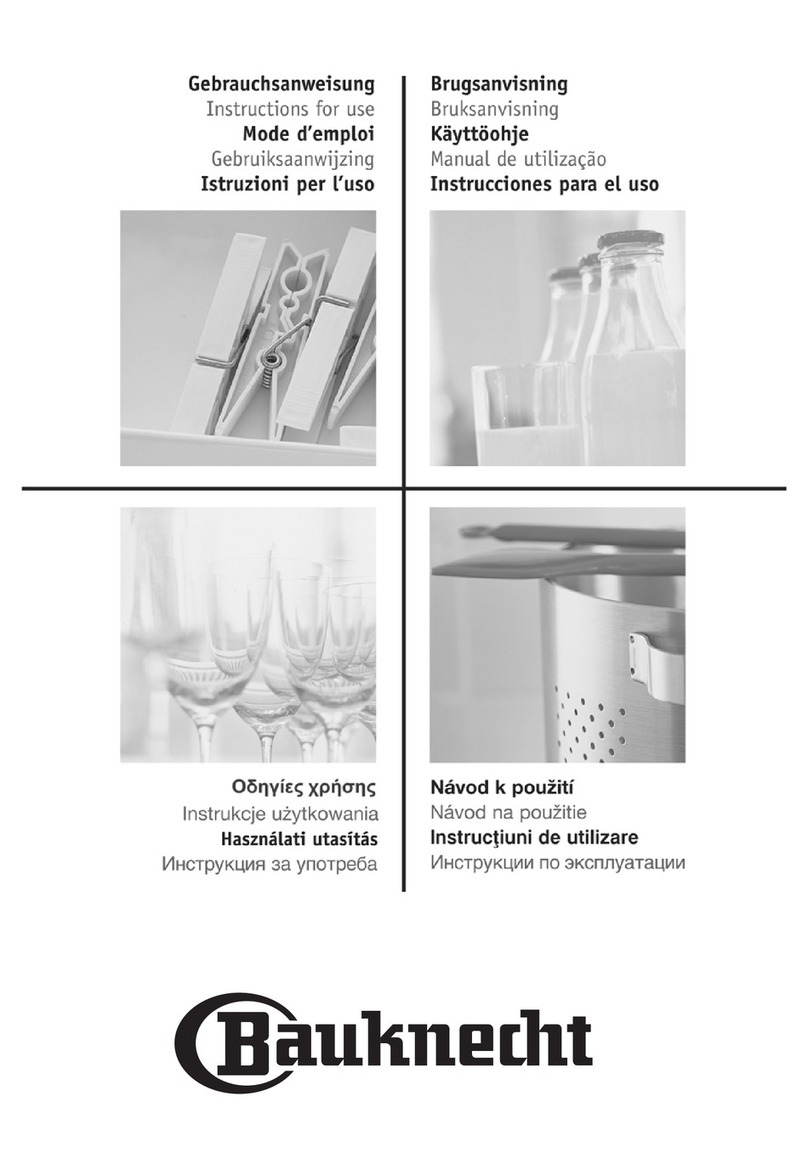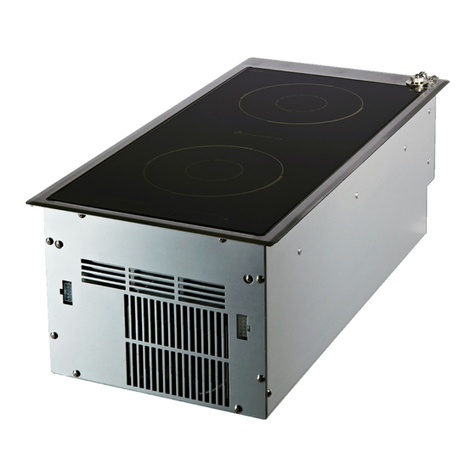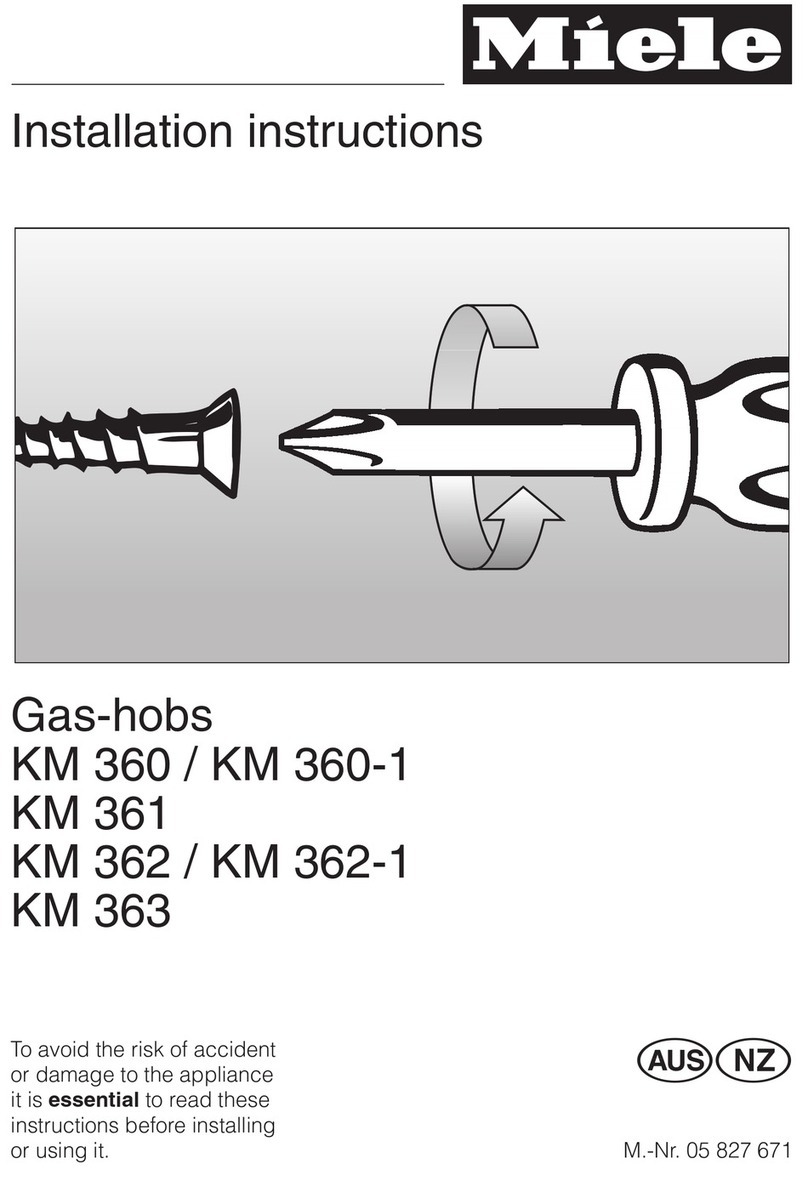
10
Attention!
The appliance gets very hot, mainly around the cooking areas. It is very important
that children are not left alone in the kitchen when you are cooking.
Do not use a steam cleaner because the moisture can get into the appliance thus
make it unsafe.
3 - CLEANING AND MAINTENANCE
GENERAL ADVICE
• Before you begin cleaning, you
must ensure that the appliance is
switched off at the cooker switch.
• The periodical lubrication of the gas
taps must be done only by specialized
personnel.
• If a tap becomes stiff, do not force;
contact your local After Sales Service
Centre.
• It is advisable to clean when the
appliance is cold and especially when
cleaning the enamelled parts.
• Avoid leaving alkaline or acidic
substances (lemon juice, vinegar, etc.)
on the surfaces.
• Avoid using cleaning products with
a chlorine or acidic base.
• Important: The use of suitable
protective clothing/gloves is
recommended when handling or
cleaning this appliance.
• Under no circumstances should
any external covers be removed for
servicing or maintenance except by
suitablequaliedpersonnel.
WARNING:
When correctly installed, your product
meets all safety requirements laid down
for this type of product category.
However special care should be taken
around the rear or the underneath of
the appliance as these areas are not
designed or intended to be touched and
may contain sharp or rough edges, that
may cause injury.
CLEANING
• Stainless steel hob: Spillage on
the hob can usually be removed by
a damp soapy cloth. More obstinate
stains can be removed by using a
proprietary stainless steel cleaning
product that does not contain chlorine
or acidic base.
• Control panel: Clean very carefully
with water and neutral soap; the cloth
used must be rinsed well and must be
Do not shut lid when
burner alight.
ATTENTION
Do not lower the glass lid when
the gas burner are still hot
and when the oven, installed
below the cooking hob,
is on or still hot.
Do not lay on the glass lid hot
pans and heavy kitchen utensils.
Dry off any liquid which may
have spilt on the cover before
opening it.
GLASS LID (optional)



